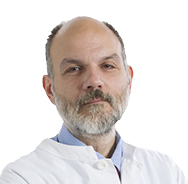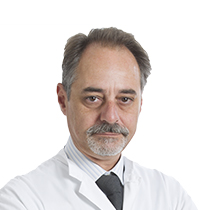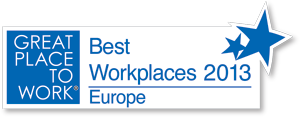- HYGEIA
- Vision & Mission
- Timeline
- Organizational structure
- Press Releases
- Social responsibility
- Awards and Distinctions
- Human Resources
- Scientific & Training activities
- Articles – Publications
- Our Facilities
- Magazines
- Healthcare Programs
- Doctors
- Services
- Medical Divisions & Services
- Imaging Divisions
- Departments
- Units
- Centers of Excellence
- Emergency – Outpatient
- Nursing Service
- Ambulances
- Patients
- Hygeia
- Υπηρεσίες
- Ιατρικά Τμήματα & Υπηρεσίες
Clinical Laboratories

The Central Laboratories of HYGEIA Hospital offer a great variety of laboratory tests ( in blood, urine, stool and other biological material), and contribute in:
- Disease diagnosis
- Treatment follow-up
- Detecting pathological deviations before they manifest themselves
Central Laboratories feature state-of-the-art equipment and an information technology system that allows continuous control of sample processing and examination execution.
Central Laboratories feature the following departments
- Haematology
- Blood bank
- Biochemistry
- Bacteriology
- Immunology – Hormones
- Urine Chemistry- Parasitology
- Special laboratory tests
The Central Labs are certified to ELOT EN ISO 15189:2012 for clinical trials by the National Accreditation System (ESYD), the official Greek accreditation body.
Apart from the implementation of a quality system, this standard certifies the technical ability of the lab to perform specific tests, meaning that strict procedures are in place in terms of technical issues and testing methodology, so that the lab results are valid and comparable.
The clinical trials the lab have been certified to conduct are listed in the Accreditation Certificate and the official accreditation scope, available here.
Advisory Services
The experienced laboratory staff are qualified scientists who meet the requirements of ISO 15189 (5.1.2 & 5.1.6). They communicate with all the users of the service offered by the Lab, based on the regulations implemented by the HYGEIA Hospital Clinical Lab Committee. Specifically the Lab:- Performs the tests that are selected by each patient’s clinical/attending physician.
- Provides information on the need to perform certain tests that are necessary for the treatment process.
- Offers additional, interpretive notes on the test results.
- Ensures that a test requested by a clinical physician is necessary and useful.
- Gives instructions on patient and sample preparation, as well as the limitations of the requested test.
- Proposes the materials and tests that would lead to useful results for diagnosis and treatment purposes.
- Informs the clinical/attending physician of any deviation from the acceptable limits, which may affect the analysis of the sample.
- Provides additional information on the usefulness and the clinical conclusions arising from the test results.
- Proposes extra tests for the same sample, but using different methodologies, so that the result is documented effectively.
Current investigational interests:
- Bacterial resistance
- Dabigatran plasmaconcentration using current and new methods
Daily internal quality controls and regular external quality controls are performed in all the departments, in line with international and Greek standards (Biorad, College of American Pathologists [CAP], National External Quality Review System [ESEAP]).
Each year, the Central Laboratories carry out more then 590,000 tests for over 83,000 patients. Apart from conventional tests, the departments also process the following tests:
- Enzymes and isozymes
- Complete biochemical analysis
- Hemoglobinopathy evaluation
- Paraproteinemia testing
- Detection of parasites in blood, skin or stool
- Trace element evaluation
- Therapeutic drug levels
- Isolation and identification of pathogens that require special culture conditions
- Phenotypic testing for tolerance of multidrug resistant bacteria (KPC, ESBL, MRSA, VRE)
- Detection of dermatophytes in lesions of the skin, scalp and nails
- Rapid detection of pathogens in the respiratory, gastrointestinal and central nervous system, and in blood
- Detection of antibodies among parasites, fungi and viruses using highly specialized and sensitive methods
- Detection of antibodies in autoimmune diseases
- Prenatal screening
- Fast detection of antigens of viral agents and toxins
- Antiplatelet therapy action testing
- Platelet function test
- Novel anticoagulant (NOAC) action testing
- Complete hemorrhagic and thrombophyllic diathesis testing
Instructions on how to prepare for collection of biological samples (urine, blood)
All the tests within the Central Laboratory departments are performed with latest technology analyzers. The VITEK® MS MALDI TOF system was installed in the Central Laboratories in January 2015. This technology allows fast microbial identification from clinical samples and provides valuable information rapidly, so as to select the best antibiotic treatment. It also assists in proceeding with the most suitable actions when managing epidemics and limiting the spread of infections. The system may analyze up to 192 samples simultaneously, while it has been designed for optimized workflow in the clinical microbiology lab and has been approved by FDA and CE/IVD as a diagnostic tool. The FilmArray system for fast detection of pathogens in the respiratory, gastrointestinal and central nervous system, as well as in blood cultures was put into action in November 2015. This system diagnoses the pathogen responsible for the infection within an hour (60 minutes) of sample collection. The system has been approved by the FDA and CE/IVD for diagnostic use. It is applied on nasal samples to test for respiratory infections (including testing for the H1N1 virus), on diarrhoeic fecal samples for gastrointestinal infections and on CSF for central nervous system infections. It is also used to identify pathogens from positive blood cultures. Press Release / FilmArray system Press Release / VITEK MS MALDI TOF Contact Us
Contact Us4th floor
+30 210 686 74903rd floor
+30 210 686 7452Blood bank
+30 210 686 7499
Biochemical
+30 210 686 7878
+30 210 686 7879
Seroreactions
+30 210 686 7572
Urochemical
+30 210 686 7571
Cultures
+30 210 686 7877
Haematological
+30 210 686 7542
Administration
+30 210 686 7580Medical Team
- Director
-
 Papadogeorgaki Eleni
Papadogeorgaki Eleni - Αttending Physicians
-
 Papoutsaki Vasiliki
Papoutsaki Vasiliki
- © 2007-2025 HYGEIA S.M.S.A.
- Personal Data Protection Policy
- COOKIES Policy
- Terms of Use
- Privacy Policy
- Credits
- Sitemap
- Made by minoanDesign
Ο ιστότοπoς μας χρησιμοποιεί cookies για να καταστήσει την περιήγηση όσο το δυνατόν πιο λειτουργική και για να συγκεντρώνει στατιστικά στοιχεία σχετικά με τη χρήση της. Αν θέλετε να λάβετε περισσότερες πληροφορίες πατήστε Περισσότερα ή για να αρνηθείτε να παράσχετε τη συγκατάθεσή σας για τα cookies, πατήστε Άρνηση. Συνεχίζοντας την περιήγηση σε αυτόν τον ιστότοπο, αποδέχεστε τα cookies μας.
Αποδοχή όλων Άρνηση όλων ΡυθμίσειςCookies ManagerΡυθμίσεις Cookies
Ο ιστότοπoς μας χρησιμοποιεί cookies για να καταστήσει την περιήγηση όσο το δυνατόν πιο λειτουργική και για να συγκεντρώνει στατιστικά στοιχεία σχετικά με τη χρήση της. Αν θέλετε να λάβετε περισσότερες πληροφορίες πατήστε Περισσότερα ή για να αρνηθείτε να παράσχετε τη συγκατάθεσή σας για τα cookies, πατήστε Άρνηση. Συνεχίζοντας την περιήγηση σε αυτόν τον ιστότοπο, αποδέχεστε τα cookies μας.




















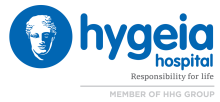



 Photos
Photos 